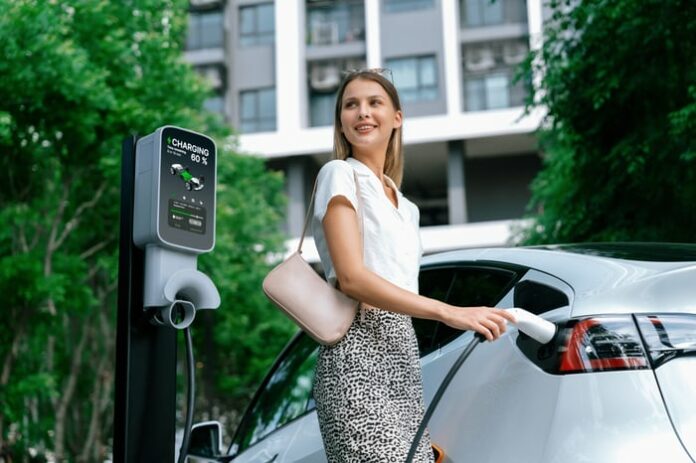The Electric Vehicle Race: Tesla vs. Rivian
The electric vehicle (EV) market is becoming increasingly competitive as both established automakers and new startups introduce fresh EV models. Last year, this surge in competition contributed to a 7% increase in EV sales in the U.S.
However, identifying a standout investment in the EV stock market is challenging. Many companies have seen their share prices decline in recent years as investors assess how quickly EVs might supplant traditional vehicles.
Start Your Mornings Smarter! Wake up with Breakfast news in your inbox every market day. Sign Up For Free »
This scenario raises the question: Is the more established Tesla (NASDAQ: TSLA) a better buy, or does the up-and-coming Rivian (NASDAQ: RIVN) hold more promise? Below, we explore the strengths of both companies.

Image source: Getty Images.
Why Choose Tesla?
Tesla remains a dominant player in the EV industry, holding 18% of the battery electric vehicle market. However, increasing competition from Chinese automakers and startups presents challenges.
The company’s established manufacturing processes mean it can navigate rising material costs and supply shortages more effectively than smaller competitors.
Despite some valid critiques—such as older vehicle models and the delay of an anticipated cheaper EV—Tesla CEO Elon Musk has indicated that the launch of a more affordable model could come later this year, though details remain vague.
On the innovation front, Tesla recently introduced a Robotaxi, expected to integrate into an upcoming ride-hailing service. Analysts project that the global autonomous ride-hailing market could reach $480 billion by 2032. Investments from big players like Alphabet‘s Waymo and Nvidia signal that this sector is gaining traction.
However, Tesla’s fourth-quarter results were below expectations, with total sales rising only 2% to $25.7 billion. Automotive revenue fell 8% to $19.8 billion due to reduced average selling prices across various models.
Understanding Rivian’s Potential
Rivian has made a splash in the EV market, winning high satisfaction ratings from consumers, even surpassing traditional automakers. Notably, both Volkswagen and Amazon have invested heavily in Rivian.
Production at Rivian dropped by 13.5% in 2024, resulting in 49,476 vehicles produced, while deliveries rose by 3% to 51,579. Recently, management announced that many of the component shortages affecting production have been resolved.
Rivian aims to post its first gross profit in the upcoming fourth quarter, with financial reports expected on February 20. The company has also successfully reduced material costs and restructured production to lower expenses.
However, Rivian faces a tough journey ahead. In the third quarter, it reported a net loss of $1.1 billion, indicating that ramping up production is crucial. Nevertheless, there are positive developments for the company.
Set for launch in the first half of 2026, Rivian’s new, smaller R2 SUV will start at $45,000, significantly more affordable than its current R1S model, priced at $75,900. This shift could broaden Rivian’s market appeal.
Additionally, a recent joint venture with Volkswagen allows the manufacturer to utilize electric architecture and technology for future projects, with Rivian expected to receive up to $5.8 billion in investments, equity, and loans. This partnership indicates a high level of trust from established automakers in Rivian’s potential.
Your Investment Goals Will Guide Your Choice
Tesla and Rivian are at different stages in their electric vehicle journeys. While Tesla is a well-established company poised for profitability, Rivian is still carving out its place in the market. This makes direct comparisons difficult.
Investors might consider a mix of both stocks, keeping in mind the necessary compromises. Tesla’s remarkable share price increase of 100% over the past year (as of this writing) results in a pricey forward price-to-earnings ratio of 115.
In contrast, Rivian represents a speculative investment as it navigates production increases while facing competition from other EV startups. Its strong brand presence, cost-cutting strategies, and significant partnerships make it worth considering, which is why I personally hold its stock.
If you’re willing to pay a premium for a mature EV stock, look towards Tesla. However, if you’re interested in investing in a startup that has the potential to grow rapidly, Rivian offers an exciting prospect.
A New Opportunity Awaits
Have you ever felt like you missed your chance to buy successful stocks? If so, there’s good news.
Our team occasionally issues a “Double Down” stock recommendation for companies they believe are on the verge of significant growth. If you’re concerned about passing up your investment chance, now may be the perfect time to act. The data supports this.
- Nvidia: if you invested $1,000 when we doubled down in 2009, you’d have $302,501!*
- Apple: if you invested $1,000 when we doubled down in 2008, you’d have $43,181!*
- Netflix: if you invested $1,000 when we doubled down in 2004, you’d have $527,934!*
Currently, we are issue “Double Down” alerts for three extraordinary companies, and opportunities like this are rare.
Learn more »
*Stock Advisor returns as of February 3, 2025
John Mackey, former CEO of Whole Foods Market, an Amazon subsidiary, is a member of The Motley Fool’s board of directors. Suzanne Frey, an executive at Alphabet, is a member of The Motley Fool’s board of directors. Chris Neiger has positions in Rivian Automotive. The Motley Fool has positions in and recommends Alphabet, Amazon, Nvidia, and Tesla. The Motley Fool recommends Volkswagen Ag. The Motley Fool has a disclosure policy.
The views and opinions expressed herein are the views and opinions of the author and do not necessarily reflect those of Nasdaq, Inc.

